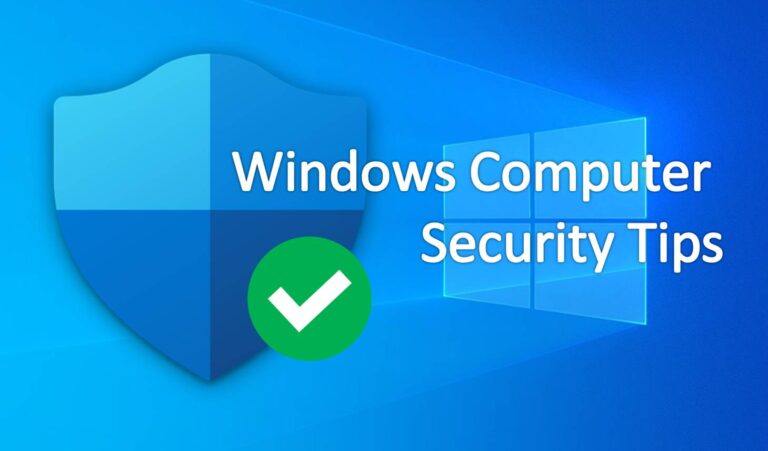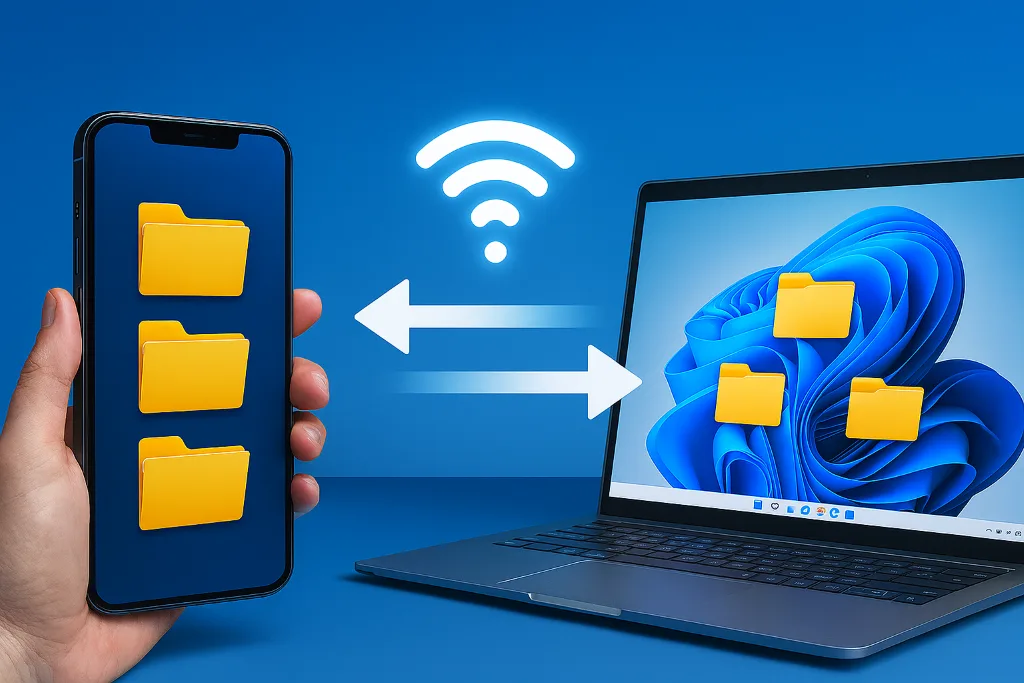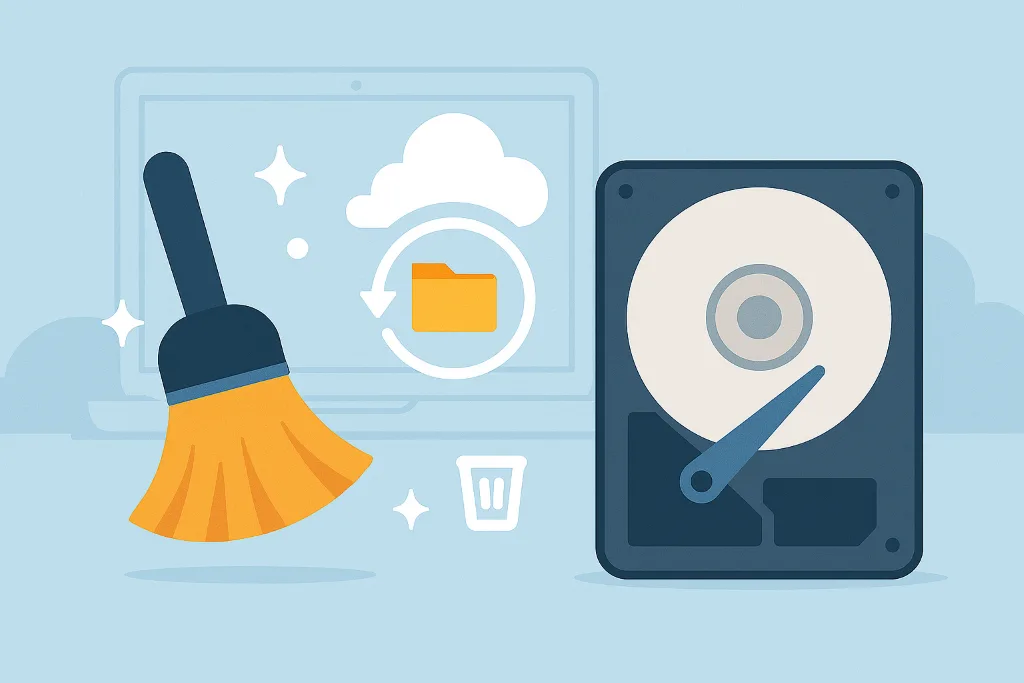Computer security is something that cannot be ignored. Sama seperti rumah yang perlu dijaga dari pencuri, komputer adalah “rumah digital” Anda di dunia maya. Tanpa perlindungan yang tepat, sistem operasi Windows sering menjadi target serangan siber melalui perangkat lunak berbahaya, baik secara online maupun offline.
Secara default, Windows sudah dilengkapi berbagai alat keamanan untuk melindungi data dan sistem. However, banyak pengguna yang kurang peduli atau bahkan mengabaikan prosedur keamanan dasar. Padahal, menjaga keamanan komputer dan membersihkan file sampah di Windows 11 adalah dua langkah penting yang wajib dilakukan setiap pengguna.
In this article, saya akan membagikan 9 tips keamanan komputer yang mudah diterapkan, free, dan praktis berdasarkan pengalaman sebagai Administrator TI. Meski sederhana, jika dijalankan secara konsisten, tips ini mampu memberikan perlindungan siber yang signifikan sekaligus menjaga performa komputer tetap optimal.
List of contents:
🎖️ Best Tips for Maintaining Windows Computer Security
🛡️Activate Antivirus and Firewall
Windows 10 and Windows 11 has been equipped with features Windows Security. Inside there are tools Antivirus And Firewall which is enabled by default, Check and ensure that these two tools are always active.
If you are still using Windows 7 then you need to install Antivirus to increase the level of security.
Antivirus functions to prevent viruses and malicious code from entering the computer. A firewall is a network security system designed to prevent unauthorized access to or from a network.
🔐Create a Strong Administrator Account Password
The first account on a Windows computer is a member of the Administrators group and has rights to install software and change system configurations. The admin account has a “master key” to the entire system. If hacked, all data and settings can be taken over.
You should create a strong password for the administrator account and make sure you remember it. This aims to ensure that not just anyone can make changes to the system.
If you don't use a password, anyone who uses your computer can make changes to the system, it could be a child, your sibling or co-worker.
🧑🦰 Use a Standard User Account for Daily Activities
If you haven't used standard user, create and use immediately. Learn how create a new user account in Windows 11.
By using the standard user, Your system will be protected from unwanted or accidental changes. It also helps block unwanted software installations.
If you open a malicious file in a standard account, damage is only limited to personal folders, not the entire system.
When you want to open a document or image, but suddenly the system asks for Administrator confirmation, then you should be suspicious. Normally the system does not require Administrator permission to open a document or image.
⚠️ Activate User Account Control

User Account Control (UAC) needed to maintain computer security. UAC works to notify you every time there will be changes to the computer system. When a virus tries to attack your computer, the first time the virus will try to turn off this function.
💽 Perform Backup
A computer security tip that is no less important is to back up. Regular file backups are an important way to protect against the loss of any important data on your hard drive.
Sudden hard drive failure or viruses can be detrimental, especially if you lose all the photos, document, and other valuable data. On the computer you use for work, such a loss could be a costly setback.
Apart from making backups to internal or external storage, We recommend that you also back up to cloud storage such as Google Drive, learn how Automatic data backup with Google Drive.
The more benefits you get by backing up to Google Drive are:, Your data is maintained even if your hard disk is damaged, You can access your data again anywhere so that your work and tasks are not interrupted. Each of your files will be scanned by Google's system thereby increasing the security of your computer.
🧾 Recognize File Types and Sources
The following computer security tips are often ignored by users. When you open an attached file from an email or copy from a flash disk, pay attention and identify the type of file you are going to open.
Certain files can masquerade as regular documents. For example, the file “report.pdf.exe” looks like a PDF, even though it is actually a dangerous program.
Virus makers try to trick you by creating malicious files that resemble ordinary documents. You can see the file type in Windows Explorer like the picture below.

Never open pseudonymous files, when you intend to open a document Microsoft Word but in Windows Explorer You see the document by type Application.
🚫 Avoid Pirated or Cracked Software
Many of the pirated software are infiltrated with malicious software such as malware, spam, ransomware. Some pirate software requires you to turn off Antivirus and Firewall during installation, with the aim that the software can freely carry out activities behind the scenes without your control.
Allowing compromised pirated software to run on your computer is very risky. Actually, You have opened a special door for malware to enter. It is not worth sacrificing computer security for the sake of software that may not be very important. Maybe the results you get are not worth the losses you will experience.
Maybe today your computer is fine, but when the time comes the attacker has chosen his victim and it could be your computer.
Don't leave doors open or your operating system vulnerable to hackers. Download software from sources you trust.
🌐 Visit Safe Websites
Avoid visiting sites that have the potential to offer prohibited content. Many of these sites install malware quickly or offer downloads that contain malware.
Use a modern browser such asChrome, which can help block malicious websites and prevent malicious code from running on your computer.
💻 Update Windows and Applications Regularly
One of the easiest ways to improve the security of your Windows device is to keep it up to date. Windows updates often include important security patches that help protect your device from vulnerabilities. You can check for updates in Windows settings or enable automatic updates to ensure your device is always up to date.
Besides that, it is important to update other apps on your device, because outdated applications can also pose security risks.
🛡️ Advanced Level: For Maximum Protection
- Enable BitLocker: Full hard disk encryption, protect data if the laptop is lost.
- Use 2FA: An extra layer for Microsoft accounts, email, and clouds.
- Disable Remote Desktop when not in use: Reduce hacker entry points.
- Manage app permissions: Restrict camera access, microphone, and location.
- Gunacan VPN the Wi-Fi public: Protect data from eavesdropping.
🎯 Conclusion
Computer security is not just about “avoiding viruses”, it's about building healthy digital habits. With a combination of technical protection (antivirus, firewall, update) and intelligent behavior (backup, file alert, avoid cracks), You can keep your computer safe while protecting your personal and work privacy.
Tips yang telah disebutkan di atas tidak menjamin 100% your computer security,-because no system is truly safe, However, the tips above can help reduce unwanted risks both when the computer is offline and online.
These are the best Windows computer security tips that I can give. Hope it is useful.








Thank You, the tips are very useful